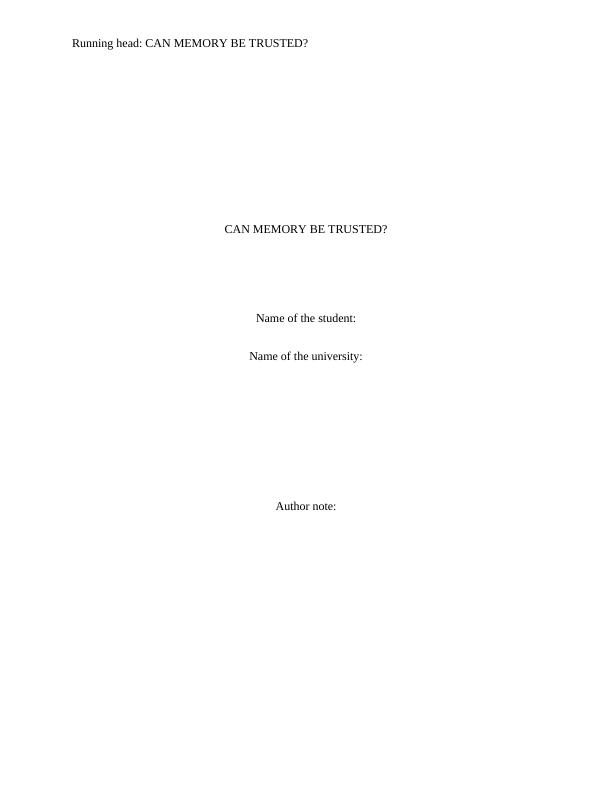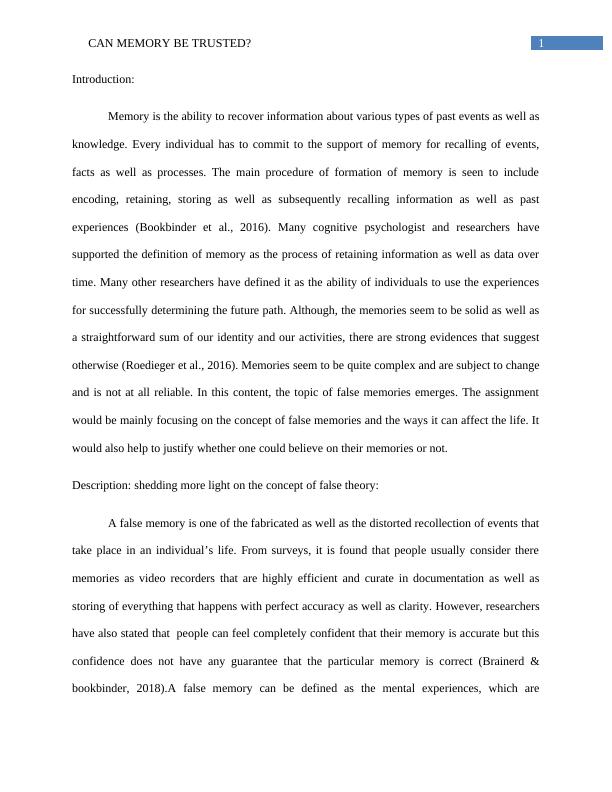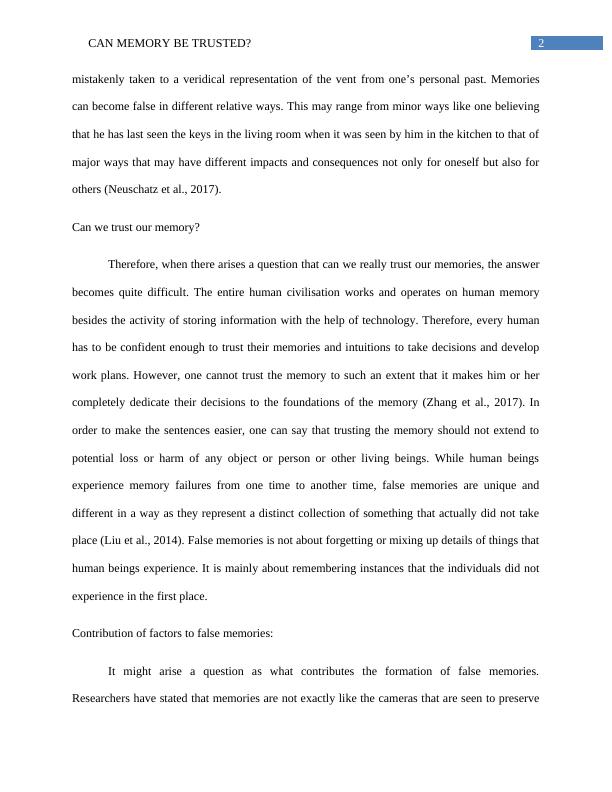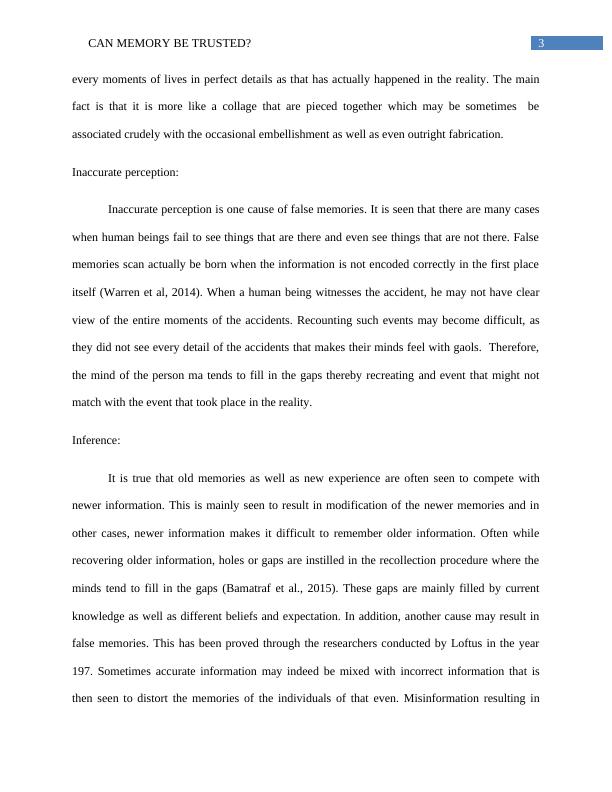Ask a question from expert
CAN MEMORY BE TRUSTED?
11 Pages2978 Words238 Views
Added on 2021-05-31
About This Document
The main procedure of formation of memory is seen to include encoding, retaining, storing as well as subsequently recalling information as well as past experiences (Bookbinder et al., 2016). However, researchers have also stated that people can feel completely confident that their memory is accurate but this confidence does not have any guarantee that the particular memory is correct (Brainerd & bookbinder, 2018).A false memory can be defined as the mental experiences, which are mistakenly taken to a veridical representation of the
CAN MEMORY BE TRUSTED?
Added on 2021-05-31
BookmarkShareRelated Documents
End of preview
Want to access all the pages? Upload your documents or become a member.
HPS 203/773 - The Human Mind
|11
|2864
|53
Reflection on Jemma’s Discussion Post | Essay
|4
|785
|12
Concept of Déjà Vu | Essay
|4
|925
|17
False Memories: Understanding the Phenomenon of Memory Distortions
|5
|885
|477
Psychology Assignment | Effects Of Age On Rate Of False Recognition
|9
|1242
|120
Perception and Cognition Assignment PDF
|9
|2856
|47



